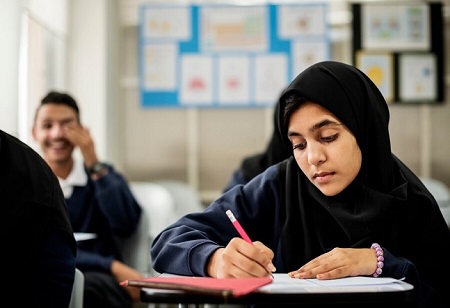The Council of Ministers recently granted the establishment license for the King Abdullah Petroleum Studies and Research Center's (KAPSARC) School of Public Policy (KSPP). The announcement came during the Human Capability Initiative (HCI), led by Crown Prince Mohammed bin Salman bin Abdulaziz. This initiative is part of Saudi Arabia's Vision 2030 Realization Programs.
KSPP, under the patronage of Prince Mohammed bin Salman, introduces a two-year master's degree and executive education programs. The goal is to empower future policy leaders and professionals in Saudi Arabia and globally. The curriculum focuses on addressing pressing public policy challenges across sectors, fostering impactful socio-economic decision-making.
His Royal Highness, Prince Abdulaziz bin Salman Al Saud, the Minister of Energy and Chairman of KAPSARC's Board of Trustees, shared the vision for KSPP. The school aims to equip the new generation with the knowledge and skills necessary for shaping public policy locally and globally. The mission is to enable informed decision-making in socio-economic matters.
Fahad Alajlan, President of KAPSARC, highlighted the school's mission to influence public policy on national, regional, and global scales. The School of Public Policy intends to empower leaders with the right skills to create data-driven, evidence-based policies aligned with the goals of Vision 2030.
Dr. Ghadah Alarifi, Founding Dean of KSPP, emphasized the crucial role public policy plays in societal progress. KSPP seeks to catalyze collaboration, fostering an ecosystem that connects academia, industry, and government in the public policy domain.
KSPP commits to high sustainability standards in the Saudi educational sector, including a goal of relying on 100 percent renewable energy. The dedication involves meeting annual energy needs through on-site renewable resources, eliminating dependence on fossil fuels.

